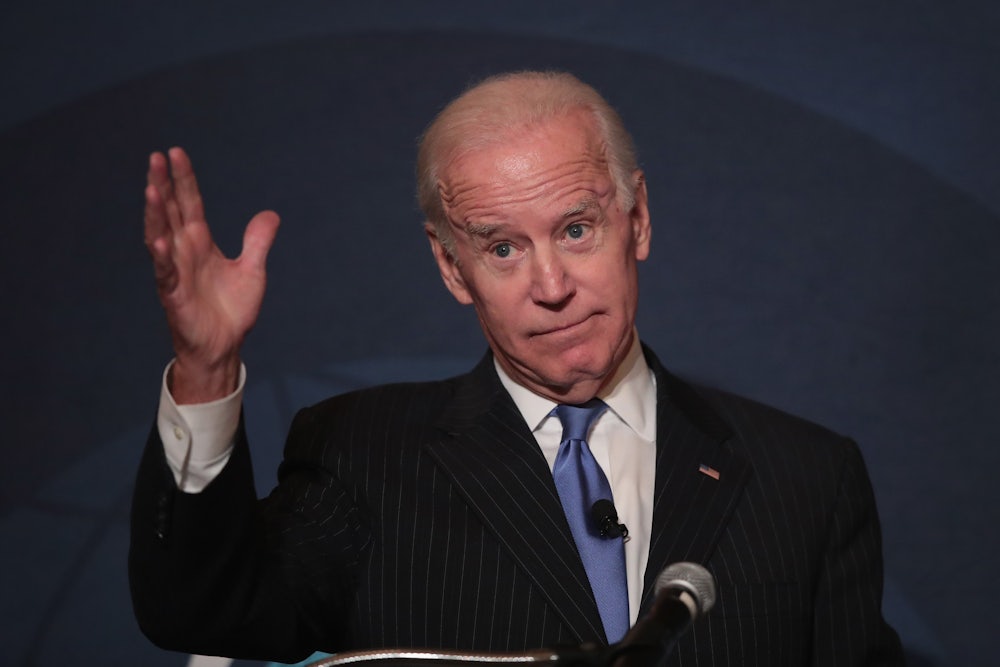Tonight and Thursday night will mark the start of a new stage in the 2020 presidential primary. With a pair of debates in Miami, 20 of the now 25 Democratic hopefuls will take their cases (and their faces) to a broader national audience—and for many, this will be one of their few chances to distinguish themselves from the pack. While the “invisible primary season” will linger on for some time, as candidates continue to jockey for money and endorsements, the reality of the election—the part that includes winning over actual voters across more than a few early voting states—will finally sink in.
That also means that the candidates will begin to deal more regularly with the unfortunate realities of active campaigning: Inane questions, horse race coverage, and an overwhelming focus on the superficial over the substantive. Thus far, the early primary season has, surprisingly, been an ideas-driven affair, with candidates racing to release the best and most comprehensive policy proposals on issues from climate change to health care to antitrust enforcement. The unsurprising, though still notable, exception to this would be frontrunner Joe Biden, who is doing his best to avoid any position he can’t define as “civil.”
There is perhaps no one better suited to shepherd the Democratic primary into a more superficial phase than one of the chosen co-moderators of the first two debates, NBC’s Chuck Todd. Fresh off getting outfoxed by the dumbest president in American history, Todd will bring his both sides–y brand to the debates. His recent scolding of Representative Alexandria Ocasio-Cortez is a case in point. After she correctly noted that the United States was running concentration camps for migrants on its southern border, Todd took to the airwaves to ape right-wing talking points, claiming—incorrectly—that Ocasio-Cortez had compared them to Nazi death camps. Todd’s Meet the Press is notorious for its overreliance on right-wing panelists, and the debate will undoubtedly feature him framing issues the way Republican senators would. We can expect, for instance, questions about how Democrats will pay for all their big plans—a question Todd would be unlikely to ask about, say, a war with Iran.
But the sheer number of policy proposals that Democratic candidates have created does suggest that much of the conversation will center on issues. Health care, one of the most important issues in the 2018 midterms, will likely be a major focus, as candidates will be pressed on the specifics of their various plans and, of course, what they will cost. The administration’s saber rattling in Iran will likely force a foreign policy conversation, if one heavily weighted toward the Persian Gulf. There is no doubt that Todd will ask about impeachment and the president’s conduct more generally. Even climate change, long-ignored by mainstream outlets despite its importance to Democratic voters (and the planet, for that matter), will likely be addressed, if only for a few minutes.
Immigration policy has been underserved in the early stages of the primary. Given recent reporting about the horrific conditions in which children are warehoused, the humanitarian crisis unleashed by the Trump administration should get ample attention. It should, but Todd could just as easily frame this as many Republicans would—asking, for instance, how Democrats would deal with undocumented immigrants convicted of violent crime. But better questions at this point would probe what kind of immigration policies the candidates propose, and how each would deal with the real, GOP–made crisis at the border. Thus far, the two Texas Democrats in the race, Julián Castro and Beto O’Rourke, are the only two to have released comprehensive immigration proposals. Here’s hoping other Democratic candidates will be challenged to step up this week.
Antitrust enforcement is finally back in vogue. It’s an enormously consequential issue, and one not confined to the tech sector, as it often is in most coverage. Capital concentration has profound effects on both the economy and on politics, but monopoly power has really only been addressed by Elizabeth Warren and Bernie Sanders.
On foreign policy, Democrats, as mentioned, will likely have an opportunity to take a strong stance against the administration’s belligerent, incoherent approach to Iran. But there are larger questions to ask about the U.S. role in the Middle East—specifically, its imperial presence and relationship to Saudi Arabia and Israel—that could provoke more interesting and illuminating answers than the simple gainsaying of Trump’s bellicose posturing. Asking how the U.S. should respond to situations in Venezuela and Sudan would also help clarify how candidates feel about using American military and diplomatic power, as would questioning how they would deal with Russia. Todd will undoubtedly ask about Russia, but the diplomatic angle is much more pressing than another belated question about 2016 election interference.
On the question of elections, the issue of voting rights is much more pressing than interference, even if it’s much less likely to come up. A number of candidates, including Warren and O’Rourke, have released lengthy plans addressing recent attacks on enfranchisement and ballot access. But that raises another important issue: How Democrats plan to actually implement the policies they’ve proposed. Addressing the practicalities of passing legislation would also reveal quite a bit about a candidate’s thinking, and how clearly they see the realities of contemporary politics. Biden’s insistence, for example, that he can persuade Republicans to get on board with his agenda is vexing.
Todd, who will share the stage both nights with other NBC/MSNBC/Telemundo luminaries Lester Holt, Rachel Maddow, Savannah Guthrie, and José Diaz-Balart, will likely keep things light and breezy, hitting the issues he needs to while steering the conversation to sexier, cable news–friendly territory—and to the president. But nearly every hour of every day is consumed by the dumb stuff that Donald Trump has done. For two hours on Wednesday and Thursday, it would be nice to elevate the conversation.
